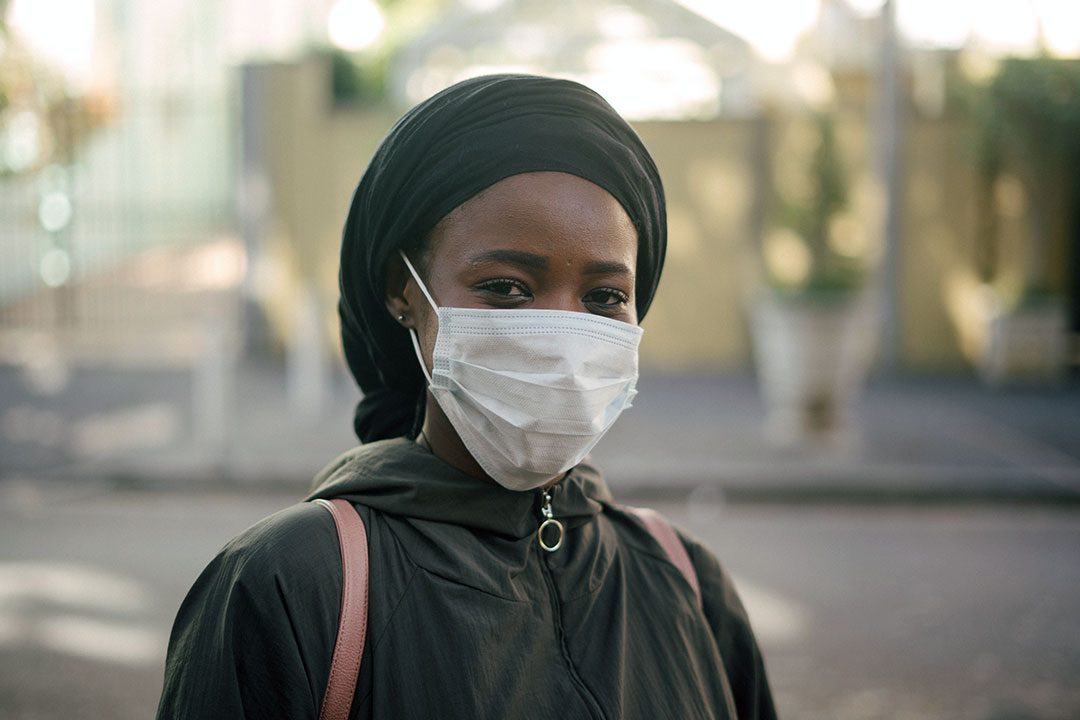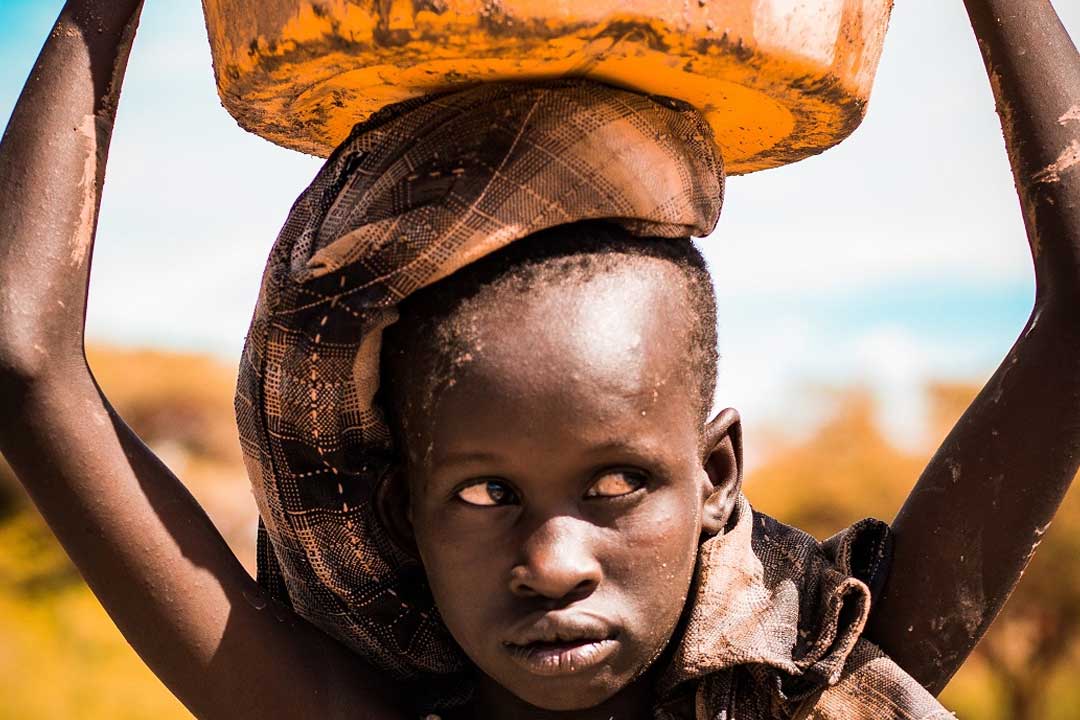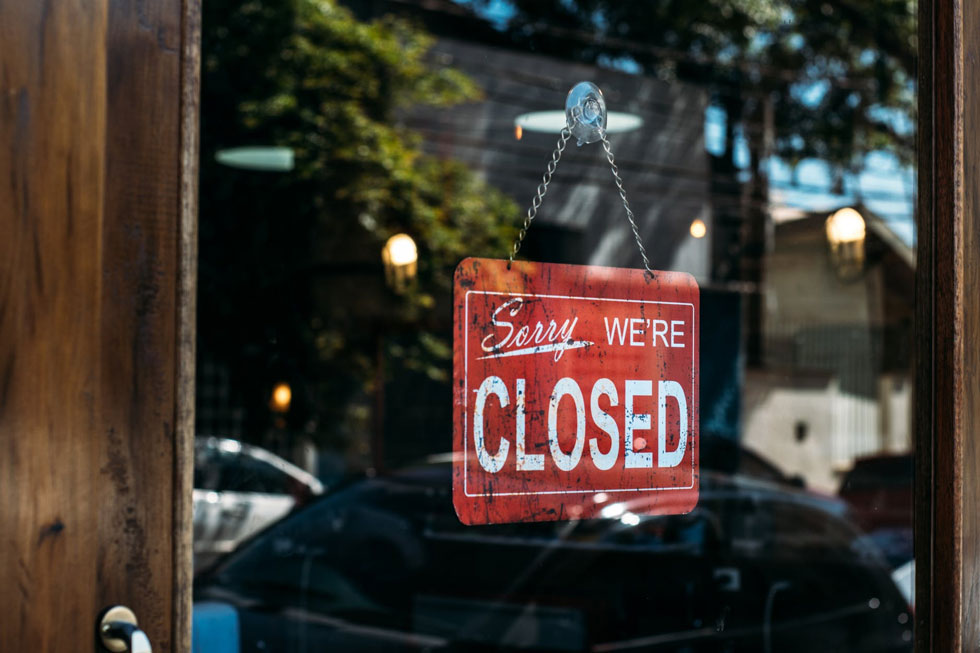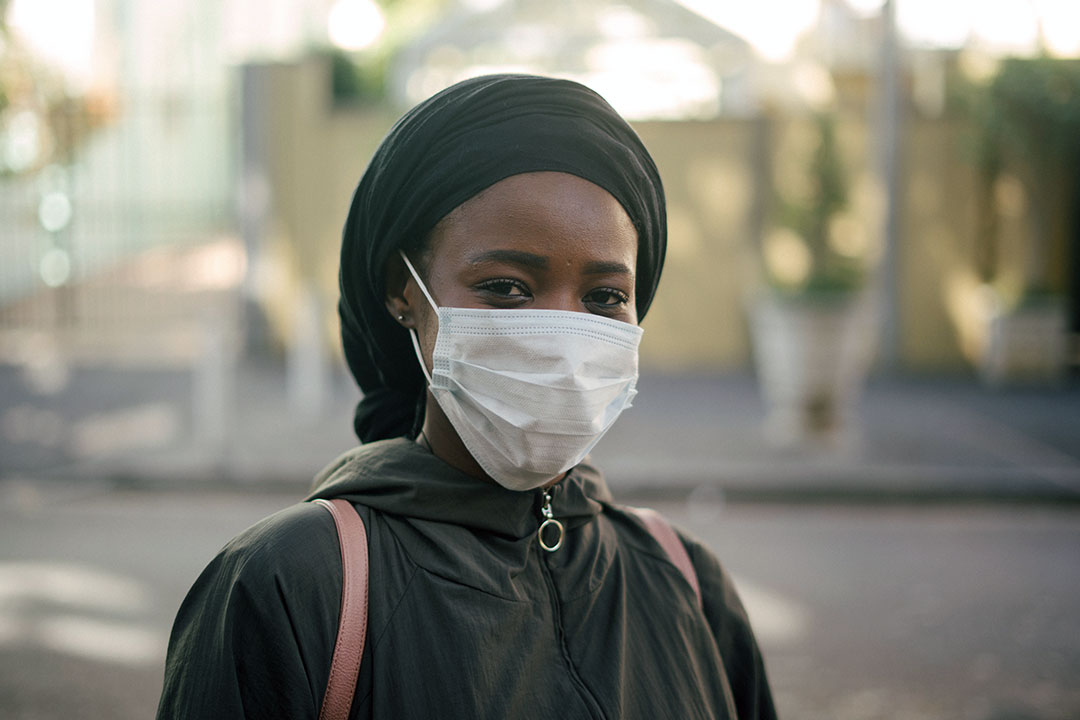
Platform for Labour Action (PLA) is a National Civil Society Organization that was founded in the year 2000. PLA is focused on promoting and protecting the rights of vulnerable and marginalized workers through empowerment of communities and individuals in Uganda.
21,463
Lives impacted
22
years of service
Our impact; stories of change

- Details
- Category: Blog
BACKGROUND
The World Health Organization (WHO) declared corona virus commonly referred to as COVID-19 as a pandemic on March 11th 2020 a virus that first surfaced in a Chinese seafood and poultry market in the late 2019[1] . Governments across the globe have undertaken robust measures in an attempt to contain the spread of the virus. Uganda registered the first positive case of COVID-19 on March 21, 2020, and as of 27th May 2020, the cases had risen to 28 1; 69 recoveries and no deaths[2].
Upon registering the its first case and the subsequent rise in the number of cases of COVID-19, restrictive measures in addition to those already issued on 18th March 2020 were issued including suspending of all public transport means including buses, taxi, coasters, passenger trains, tuku tuku and all boda boda were; suspension of the sale of non-food items in markets and acreds, introduction of curfew hours.
These measures have since affected the populations diversely and differently. According to the International Labour Organization, the crisis has already transformed into an economic and labour market shock, impacting not only supply (production of goods and services) but also demand (consumption and investment).[3] The economic impact of the movement restrictions, lockdown, and halting of economic activities has both immediate and lasting implications for Ugandan families, particularly for the poorest and most vulnerable[4].
Despite the pandemic creating similar public health and economic concerns across the country, not everyone is equally susceptible to being infected or suffering the consequences of the crisis. DWs face a disproportionate vulnerability towards the virus, in addition to the economic burdens and risks in the wake of COVID-19.
According to a 2017 PLA Survey Profiling Domestic Work and Its Socio- Economic Contribution at Household Level and Economic Development of Uganda, Domestic Workers (DWs) are a constantly growing section of workers in the informal sector of urban Uganda representing 93% women between 15 to 30 years. They work in private spheres and thus they are invisible and often susceptible to violence. Migrant DWs are often mandated by the live-in arrangement. Live-in domestic workers face increased abuse, often gendered. It comprises assault and harassment, sexual exploitation, physical abuse, denial of resources, opportunities, and services.
INTRODUCTION
Domestic workers have and are suffering significantly from COVID-19. Starting from a weakened position, they find themselves among populations most vulnerable to the crisis. Engaging in domestic and care works puts DWs at the forefront of maintaining livelihoods and economies, and at a higher risk of both being affected by the pandemic and the policy responses to the pandemic, such as border closures, lockdowns, and curfews.
Recognizing that the pandemic has social, economic, and legal impacts, this brief lays out the contexts that DWs are currently navigating. It assesses how they have been affected by the spread of the virus and government responses. Finally, it provides recommendations aimed at improving the situation of DWs which would alleviate longer standing labour and gender inequalities within the domestic work sector.
HOW COVID-19 HAS AFFECTED DOMESTIC WORKERS
Generally domestic workers are now faced with multiple vulnerabilities and battles in the wake of COVID-19;
- Domestic workers face or have been terminated from their employment and unpaid leaves, as they are no longer allowed within the households of their employers. With lockdowns and curfews, live-out domestic workers cannot easily travel to and from work.
- Salary cuts or nonpayment of wages: Even when DWs remain employed, they are suffering from salary cuts just like other workers and denial of payment. DWs have been given hard options by some employers during this period to remain at the employer’s home without pay or to go back to their home and in the absence of public transport; the latter is not an option for them. The decrease of income is met with an increase in the price of goods and services. DWs find themselves ill-equipped to endure the pandemic in the absence of radical changes to their situation.
- Live-in domestic workers face increased and uncompensated loads of labor, and sometimes violence. The spread of COVID-19 increased the forced and excessive load of domestic work due to the domestic confinement and social distancing. While the ILO on Forced Labour Protocol of 2014 requires the prevention of forced labour, and recognizes that “certain groups of workers have a higher risk of becoming victims of forced or compulsory labour, especially migrants, “it is difficult to ensure that DWs are not forced to work under the lockdown. It is especially difficult as their workplace is a “private” household.
- High risk of infection: DWs are often not provided with protective gear by their employers. Worse, they are at risk of contracting the virus from their employers who do not respect quarantine measures.
- Forced quarantine of DWs with their employers; Some DWs have been forced to quarantine with their employers and others have been locked out of their countries given the movement restrictions internally and globally. The logic of the quarantine assumes the availability of accommodation, means of sustenance, and safety of households, all of which are often unaffordable to DWs. In countries like the Middle East, where majority of Ugandan women and youth are employed as domestic workers violence must have escalated, violation of rights well knowing that the movement restrictions cannot enable the domestic worker to leave the household.
- Awareness campaign and services oftentimes do not reach DWs due to language and technical barriers especially during this time when their employers are at home and thus they are unable to access and use information channels like Radio and Television. Social media platforms that would have served in the alternative are also not an option for them because they cannot afford to pay for data given that they are not being paid or receiving less which are using to maintain their dependants at the moment.
- Most DWs cannot access governmental relief packages and subsidies, depending on multiple factors such as the governments’ recognition of the informal sector, regular/irregular employment, and the documentation status of the workers.
- Domestic workers are also not provided with medical care and neither are they insured by their employers against occupational injuries and diseases. The employment contracts, if existent, do not consider sickness an occupational hazard or disease. Their contracts are terminated under COVID-19 because of the suspected or feared and non-confirmed infection; In any event that the domestic worker due to lack of protective gears contracted COVID-19 at the work place and subsequently succumbs to it, there will be no compensation.
RECOMMENDATIONS
- The Government needs to actively work to alleviate the systemic inequalities for DWs, which are now intensified by the pandemic. The need to regulate the sector is very critical moving forward. The Ministry o Gender Labour and Social Development and parliament should ensure that the domestic work sector is regulated in a manner to reinforce the security and rights of domestic workers.
- Awareness raising on the pandemic and the health concerns need o categorically target vulnerable invisible groups like the DWs. The information needs to be translated in the different languages. This could be through mobiles SMS awareness targeting all the registered mobile numbers.
- Employers are called upon to provide sanitizing materials and protective gears to domestic workers as well as respect the measures in place so as not to contact the virus and pass them over to their workers at home as well as the family members.
- The Domestic Workers Association needs to support fellow domestic workers to convening interactive sessions with the members so as to counteract the psychological and emotional effect caused by COVID-19.
[1] European Center or Disease prevention and Control, Rapid risk Assessment 2020
[2] Ministry of Health Press release Coronavirus updates 27th May 2020
[3] International Labour Organisation, Why are labour markets important?The Great Recession and other crises have shown that we can prevent the risk of a vicious downward cycle only through large-scale, coordinated and decisive policy measures.
[4] UNDP Social economic impact of COVID-19 in Uganda Scenarios for short, medium, and longer-term socioeconomic impacts April 2020

- Details
- Category: Blog
INTRODUCTION As the world commemorates the International Day Against Child labour on Friday, 12th June 2020 under the theme; “COVID-19: Protect children from child labour, now more than ever”, PLA takes stock of the situation of child labour in the wake of COVID-19.
COVID-19 has plunged the world into a crisis of unprecedented scope and scale. In Uganda the pandemic has and continues to worsen the country’s development challenges of poverty, unemployment and limited social protection coverage. The Minister of Finance, Planning and Economic Development (MFPED) Uganda provided preliminary assessment on March 20, 2020 of the short-term impact of the pandemic, anticipating the increase in the number of poor people by 2.6 million. The business climate index published by the Economic Policy Research Centre (EPRC) estimated that 4,000,000 Ugandans could lose their jobs and source of livelihood if the Corona virus pandemic persists for the next six months.
The uncertainty and prolonged periods confined to small homes is leading to an increasingly stressful environment. Many households are being pushed into extreme poverty and hunger as parents who have lost income are increasingly unable to feed their families.
As a result, children are increasingly forced into hazardous and exploitative work to support their families. In one survey by a Joining Forces partner, 56% of respondents reported an increase in children working since lock down began (Save the Children child protection assessment, May 2020). In many parts of the country 60% of people surveyed have observed an increase in children involved in worst forms of child labour and child exploitation including girls drawn into commercial sexual exploitation, trading sex for money, food and even materials such as sanitary towels. Other young children have been observed selling alcohol, firewood and other items, or digging and planting to try and make ends meet. It should be noted that prior to COVID-19 outbreak, two million children were engaged in child labour activities (National Labour Force and Child Activity Survey (2011-2012). With the high prevailing poverty rates which have been worsened by the crisis, it is envisaged that more children will be forced and exploited in child labour activities. The suspension of schools has kept children home all the time and not learning, they are likely to be involved in child labour longer than if they were attending school.
Covid-19 has also increased the demand for cheap labour for youth (15-17 years) and exploitation. The fall in economic activity due to the quarantine measures will disproportionately impact legal working youths (15-17 years) in agriculture, domestic service and industrial sectors.
Criminal networks may actively use this global crisis to exploit vulnerabilities of children and incidences of child trafficking for labour exploitation both within and at the regional level are likely to increase during and post COVID-19 period.
CALL FOR ACTION!
Parents/guardians
- Support and protect your child (ren) during this period especially when they are now out of school to ensure that they are not exposed to exploitative forms of work and practices.
Government
- Enforce the existing laws that protect children from exploitative and hazardous forms of work and practices.
- Demand Government to foster the socioeconomic empowerment of families and communities so that they can better support children’s development; among others.
Business community
- Adopt and incorporate Business and Human Rights Principles in the day to day operations in order to protect children from exploitative forms of work.
Policy makers.
- Increase budget allocation for the Ministry of Gender, Labour and Social Development in particular to the probation and welfare offices as well as the labour officers to carry out their mandates of protecting children against exploitation and abuses.
- Amend the Employment Act of 2006 in particular the minimum age of employment of children to bring it in tandem with the Provisions of the Constitution of the Republic of Uganda.
Children
- Report to the authorities when your rights are violated particularly whenever subjected to child labour.
CONCLUSION
In Uganda, child labour has persisted even with the prevailing robust legal and policy frame work against child exploitation, this has been exacerbated by poverty, the growing levels of orphan-hood, and negative cultural norms that attach low importance on education especially for the girl child and that children are a source of labour, famine and food insecurity. This is therefore to call on government to address the above underlying major drivers of child labour.

- Details
- Category: Blog
Theme: End Child Labour – Let's Speed Up Action
On 12th June 2025, Platform for Labour Action (PLA), alongside fellow civil society organizations in Uganda, joined the global community in commemorating the World Day Against Child Labour. This year’s theme is a powerful call to accelerate efforts to eliminate child labour, especially as the 2025 deadline for Sustainable Development Goal 8.7 approaches.
📊 The Reality in Uganda
Uganda continues to face a high prevalence of child labour, with over 6.2 million children aged 5–17 engaged in work, and more than 1 million in hazardous conditions. The most affected sectors include agriculture, domestic work, mining, and informal trade, especially in regions like Karamoja, Busoga, and Northern Uganda.
🚨 Why Action is Urgent
Despite progress in legislation and policy, implementation remains slow and underfunded. The informal economy, where 90% of child labour occurs, is largely unregulated. Economic pressures, including rising living costs and post-COVID-19 challenges, have worsened the situation.
📣 PLA’s Call to Action
PLA urges all stakeholders; government, parliament, development partners, private sector, and communities to:
- Strengthen Legal Frameworks: Amend laws to explicitly ban hazardous child labour in informal sectors.
- Invest in Social Protection: Expand child-sensitive programs like SAGE and school-linked incentives.
- Rebuild Enforcement Structures: Increase staffing and funding for labour and child protection officers.
- Ensure Access to Education: Address hidden school costs and support second-chance learning.
- Adopt National Case Management Systems: Improve coordination for child labour and trafficking cases.
- Integrate Child Labour Prevention into Development Plans: Align with national poverty reduction strategies.
- Engage the Private Sector: Promote child-labour-free supply chains.
- Empower Communities: Raise legal awareness and challenge harmful social norms.
💬 Final Word
“Child labour is not inevitable; it is preventable. It is a choice society makes, and today, we call upon all of us to choose differently.”
— Grace Mukwaya, Executive Director, PLA
Let’s act now. Let’s protect childhood. Let’s end child labour.
Latest from our blog









